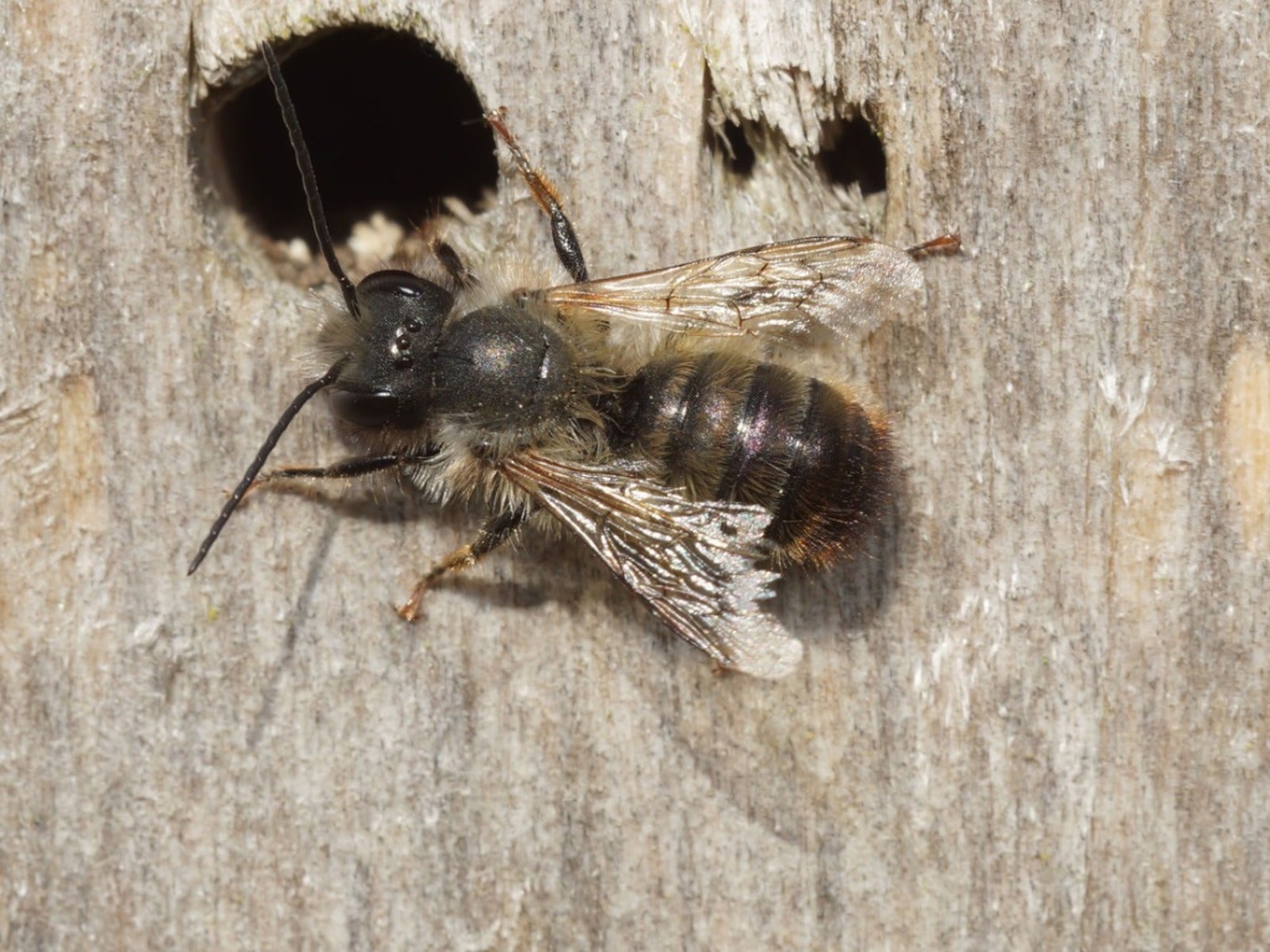Mason Bees: Everything A Gardener Needs To Know


Sign up for the Gardening Know How newsletter today and receive a free copy of our e-book "How to Grow Delicious Tomatoes".
You are now subscribed
Your newsletter sign-up was successful
The solitary mason bee is a North American native pollinator that deserves more attention and respect. Honeybees do a lot of pollinating, but they are not native, their populations are in decline, and they are not as efficient at pollinating as some other species, including mason bees. Learn more about this humble bee and how to support it in your garden.
What Are Mason Bees?
There are over 100 species of mason bee in the genus Osmia, including orchard mason bees known for pollinating in orchards. Unlike our friend the honeybee, the mason bee is solitary and does not make honey. It also differs in appearance. Many mason bee species are black and can be mistaken for flies. You can tell them apart by the wings. Flies have just one pair, while bees have two.
As a solitary animal, the mason bee nests alone in small cavities. It will find a place in a hollow stem or hole in a tree made by a woodpecker. It will also happily nest in manmade structures of the right size.
Young mason bees emerge from their nests in spring when the temperatures are consistently 50 degrees F (10 C). The males emerge first, followed by the females. They then mate, and the females return to the nests a few days later. The name mason bee comes from the fact that the females use mud to seal up their nests like a mason would use mortar.
The lifespan of each individual bee is short, but during early spring, they are active and spend time gathering nectar and pollinating plants in the process. They visit a greater diversity of plant species than honeybees. One mason bee can pollinate about 2,000 flowers per day.
Do Mason Bees Sting?
Male mason bees do not have stingers, but females do. The females of the species only sting if you corner them or harass them. Compared to many other stinging insects, your risk of being on the receiving end of a painful mason bee sting is low.
How to Support Mason Bees in the Garden
These gentle pollinators are important players in their native ecosystems and should be welcome in the garden. With many pollinator populations in decline, it’s a good idea to support native species.
Sign up for the Gardening Know How newsletter today and receive a free copy of our e-book "How to Grow Delicious Tomatoes".
Honeybees became commercial pollinators because they live in groups, and the hives can be moved around to pollinate crops effectively. Mason bees are solitary, so they will never be commercially viable. However, you can encourage them to set up shop in your yard and contribute to the pollination in your garden.
To do this, create desirable nesting sites for mason bees. An ideal mason bee nest should be a little wider than the females’ bodies. Artificial nests should be between 1/4 and 3/8 of an inch (0.6 to 0.9 cm) wide and three to six inches (7.6 to 15 cm) deep. The far end of the nest holes should be closed.
Mason bees prefer wood (don’t use pressure-treated wood or cedar). A simple mason bee home is a block of wood with holes of the appropriate size drilled into it. While they like wood, they will nest in other materials. Small cardboard tubes or bamboo stalks bundled together make a good apartment complex for mason bees. You can also find pre-made bee nests to purchase and set up around your garden.
The only other thing your local mason bees need to thrive in your garden is plants to feed on and pollinate. Plant a variety of native flowering species to keep them happy, and they will reward you with pollination year after year.

Mary Ellen Ellis has been gardening for over 20 years. With degrees in Chemistry and Biology, Mary Ellen's specialties are flowers, native plants, and herbs.